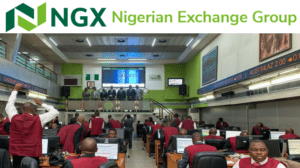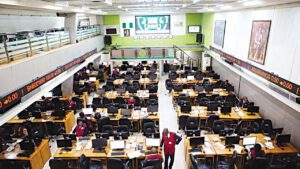Chapel Hill’s infrastructure debt fund raises N26.8bn
The newly listed Chapel Hill Denham Nigerian Infrastructure Debt Fund (NIDF) on Monday disclosed that it is raising N26.8billion series 9 offer a few days after listing on the Nigerian Exchange Limited (NGX).
The NIDF said the series 9 offer is for 246,182,408 units (nominal value of N100 each) issued at N108.89 per unit for an aggregating offer value of N26.8 billion.
In a regulatory filing, the NIDF said the fundraising is under the N200 billion Issuance Programme and is still open for subscription.
According to the NIDF, the offer was approved by the Securities & Exchange Commission and opened on September 19, 2023.
“The issuance represents the Fund’s ninth (9th) capital raise since inception in 2017 and the first since its Listing on NGX.
“The proceeds from the Offer will be applied towards infrastructure loans approved by the Fund Manager’s investment committee,” the NIDF said.
On October 5, NIDF’s 853,817,692 units were listed on the Main Board of NGX at N108.39 per share and will remit quarterly dividends to investors by paying out profits from investing in industries like power, transportation, healthcare and education.
With the listing, Chapel Hill’s NDIF became the first local currency-denominated infrastructure investment trust fund on its platform.
Through its listing on NGX, NIDF opens up the chance for investors to benefit from a diversified portfolio of asset backed loans across multiple sub-sectors and geographical spread, and listing on the NGX will further improve liquidity.
The NIDF is a N200 billion public infrastructure investment fund managed by Chapel Hill Denham.
The Chairman of NDIF, Phil Southwell during the fact behind the figures said the fund launched mid-2017 has generated 155 per cent returns.
“We have been fortunate enough not to have any non-performing loans (NPLs) and so it presents interesting risk returns for investors. In the UK market where I am originally from, 103 of the 350 stocks on the FTSE 350 are investment trusts and I look forward to being able to say the same thing about the NGX,” he said.
On his part, Chief Executive Officer, Chapel Hill Denham, Mr. Bolaji Balogun, said that NIDF has been Nigeria’s best performing fund over the last 5 years and has delivered significant impact and economic returns. He further stated that NIDF has achieved a market capitalization of N92.54 Billion, a freefloat of c.95%, and a remarkable record of zero non-performing loans from inception till date, a testament to an effective portfolio risk management strategy.
The Chief Executive Officer, NGX, Mr. Temi Popoola emphasised the commitment of the Exchange to infrastructural development and wealth creation in the country. He noted that the listing aligns with NGX’s mission to support financial market instruments that drive sustainable wealth creation and infrastructural advancement in Nigeria. According to Popoola, NGX will further enhance the visibility of NIDF, giving investors access to more investment options.




